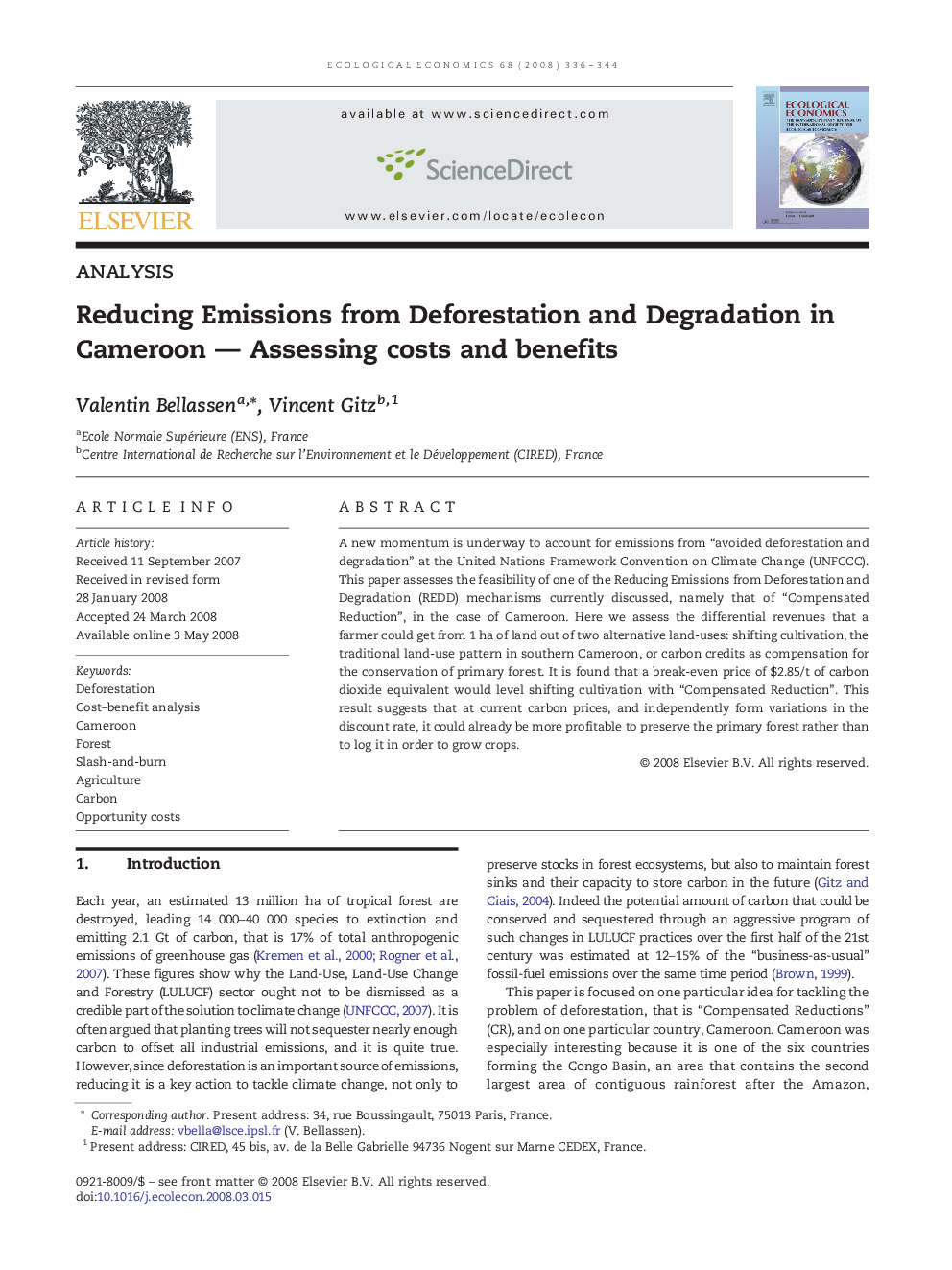| Article ID | Journal | Published Year | Pages | File Type |
|---|---|---|---|---|
| 5051694 | Ecological Economics | 2008 | 9 Pages |
Abstract
A new momentum is underway to account for emissions from “avoided deforestation and degradation” at the United Nations Framework Convention on Climate Change (UNFCCC). This paper assesses the feasibility of one of the Reducing Emissions from Deforestation and Degradation (REDD) mechanisms currently discussed, namely that of “Compensated Reduction”, in the case of Cameroon. Here we assess the differential revenues that a farmer could get from 1Â ha of land out of two alternative land-uses: shifting cultivation, the traditional land-use pattern in southern Cameroon, or carbon credits as compensation for the conservation of primary forest. It is found that a break-even price of $2.85/t of carbon dioxide equivalent would level shifting cultivation with “Compensated Reduction”. This result suggests that at current carbon prices, and independently form variations in the discount rate, it could already be more profitable to preserve the primary forest rather than to log it in order to grow crops.
Keywords
Related Topics
Life Sciences
Agricultural and Biological Sciences
Ecology, Evolution, Behavior and Systematics
Authors
Valentin Bellassen, Vincent Gitz,
